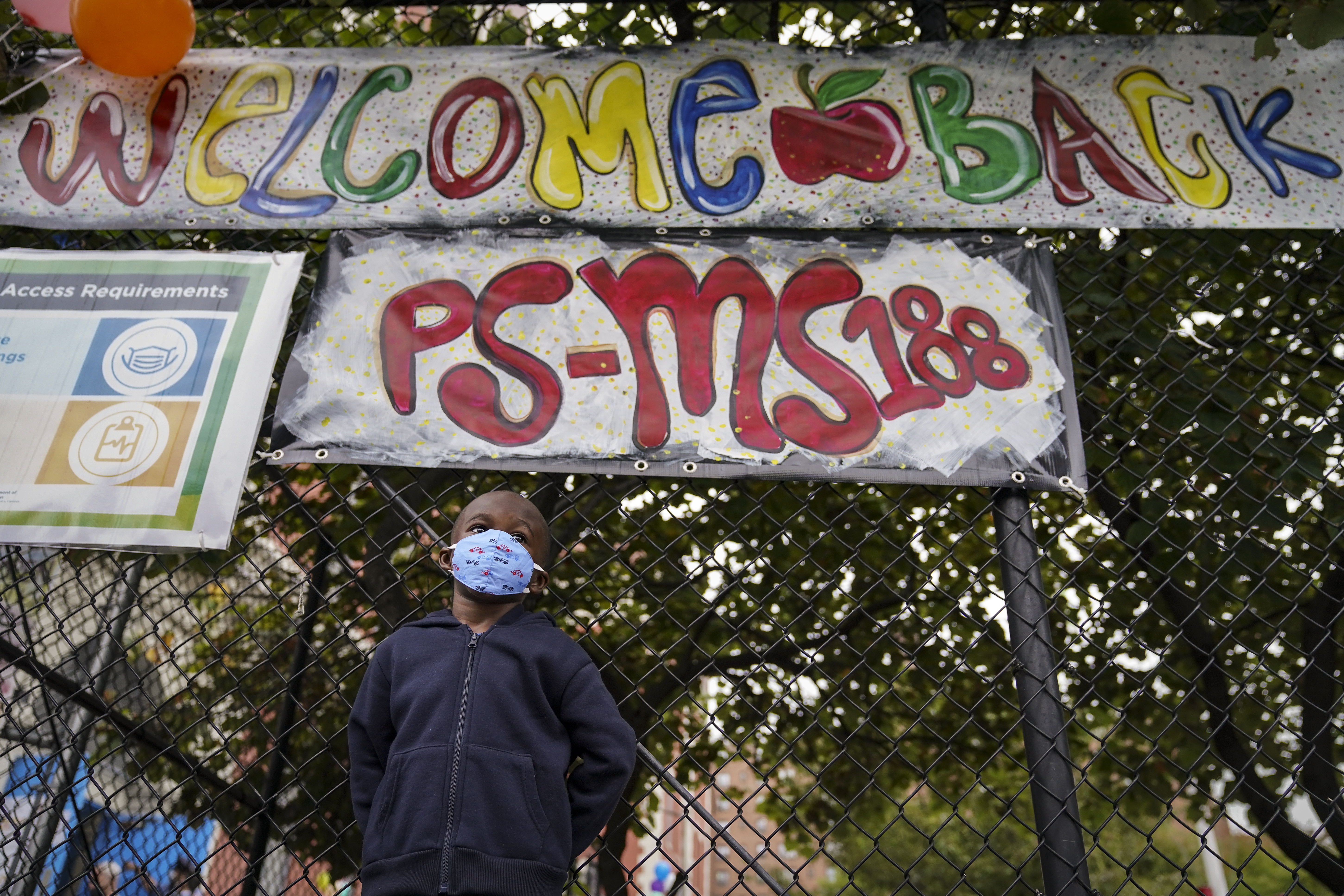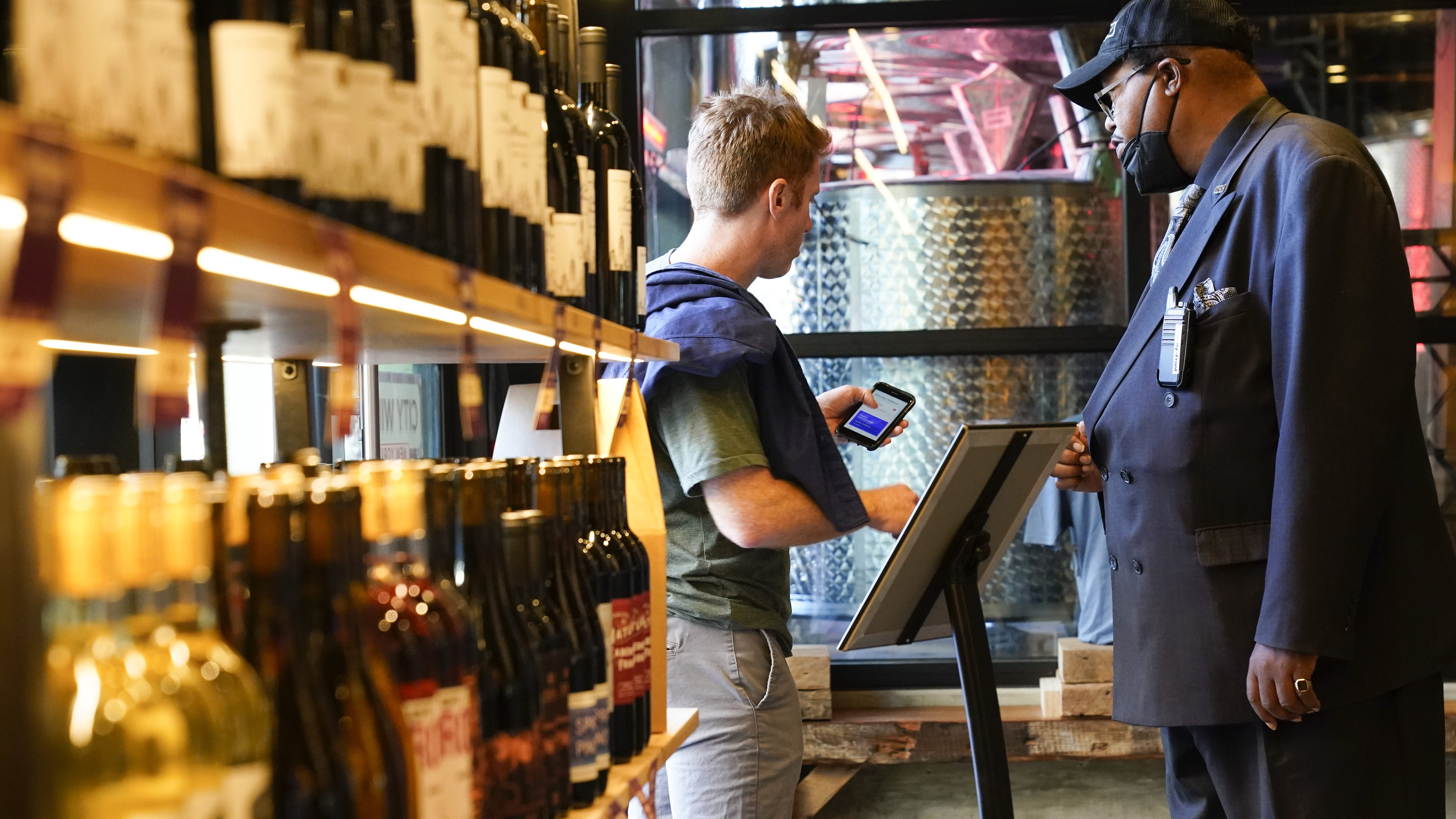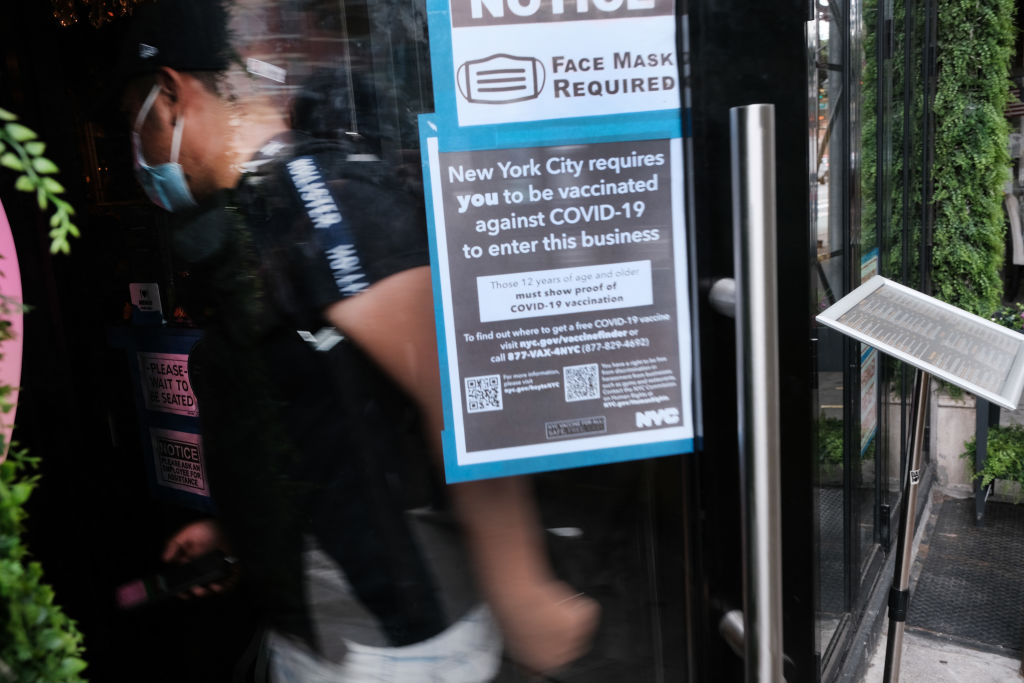What to Know
- NYC's enforcement of rules requiring workers and patrons to provide proof of at least partial vaccination to go indoors at restaurants, museums, gyms and entertainment venues begins Monday
- The vaccination requirement has been in place for weeks but had not previously been enforced; non-compliance comes with $1,000 fines. 70% of NYC residents age 12 and up are fully vaccinated
- Some exceptions apply, including for kids under 12, who aren't eligible, athletes, contractors and some performers who don't live in the city
Nearly three dozen indoor businesses in New York City subject to Mayor Bill de Blasio's citywide proof-of-vaccination mandate, including restaurants, gyms and theaters, face fines of $1,000 fine for non-compliance starting Monday.
De Blasio's vaccine requirement, which requires businesses to ask customers for proof of at least partial immunization upon entry, has been in place for weeks but wasn't enforced by the city until now. That had been part of the plan from the start.
The timing of the mandate's enforcement jives with the returns of New York City public schools and offices as well as the full reopening of Broadway theaters -- a necessary temporary step, officials say, to secure public health and assuage anxiety as out-of-home activity and tourism vie to hit their highest post-pandemic levels yet.
"This helps everyone feel safe. This gives every one of the customers the knowledge that they are safe, the employees know they're safe, it's everyone moving forward to getting our city back," de Blasio said Monday. "You're gonna be safe wherever you go -- movie theater, gym, restaurant, you're gonna be safe."
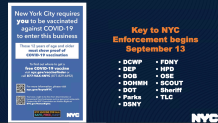
Get Tri-state area news delivered to your inbox. Sign up for NBC New York's News Headlines newsletter.
"For those who are unvaccinated, you've got to make the move now," he added. "Clearly the massive level of vaccination is driving back the delta variant. We've got a lot more work to do, but that's quite clear. We need to maximize vaccination."
The proof-of-vaccination requirement is one of the more aggressive steps undertaken over the last month and a half to help curb the spread of the COVID-19 delta variant, which has led to spikes in cases, hospitalizations and deaths nationwide. Click here for a list of indoor settings subjected to the mandate.
There are exceptions to the rule, including children under 12 — who are not yet eligible for vaccination — as well as athletes, contractors and some non-NYC-based performers. The policy also excludes church potlucks, community centers, office buildings, house parties (even if they're catered) and people who briefly duck in somewhere to pick up food or use a bathroom, among other exemptions.
Vaccination cards will be accepted as proof of inoculation, along with state and city COVID-19 vaccine apps. Not all are on board with the plan.
A group of restaurateurs has filed a lawsuit against the city over the mandate. It claims restaurants and other establishments included in the city’s vaccine mandate are unfairly targeted because many other places like grocery stores, hair salons, churches, schools and office buildings are excluded from the mandate.
De Blasio has implemented a separate vaccine mandate for New York City school personnel -- they have to be at least partially vaccinated by Sept. 27 or will go off payroll the next day. Eligible students aren't required to be vaccinated for class.
The mayor has focused on getting as many New Yorkers vaccinated as possible while resisting calls to mandate masks indoors regardless of vaccination status, as several cities and counties in California have done, as delta variant cases soared.
Nearly 94% of all U.S. counties are considered "high transmission" rate areas by the CDC, but that's down 0.93% since last week. It seems like a small drop but it's the first time that CDC data has shown a decline since the agency started tracking county-level transmission rates under this new system more than a month ago.
The city saw delta-fueled case surges of its own but those have ebbed in recent weeks, though the entire state of New York remains in the red as far as the CDC is concerned (the same is true for all of New Jersey's 21 counties).
That said, new COVID deaths and hospitalizations are stabilizing in New York City, where delta accounts for at least 98% of positive samples tested, though some ZIP codes are seeing higher transmission and severe outcome rates than others.
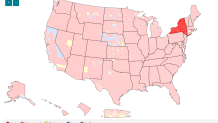
Statewide, new daily cases, hospitalizations and deaths are all still at higher daily averages compared with two weeks ago, according to New York Times data, but deaths are the metric most profoundly up (30%). That likely represents the lagging factor. With cases and hospitalizations up by lesser amounts in recent weeks, associated COVID deaths should start to decline too over time.
While the latest research indicates delta is more likely to cause breakthrough infections than other strains, it finds delta isn't more likely in a statistically significant sense to cause more severe outcomes among the vaccinated.
More on COVID-19
Risk is substantially higher for those who aren't fully vaccinated, the CDC study released Friday shows.
It found fully vaccinated people had five times less risk of infection, 10 less risk of hospitalization and 10 times less risk of COVID death than unvaccinated people.
As of Monday, 70% of New York City residents age 12 and up are fully vaccinated. Rates lag considerably among younger groups, though. Just 49% of kids age 12 to 15 in the city have completed their vaccine series, while 61% of people aged 16 to 25 can say the same, according to the latest state demographic data.
Those lagging rates -- and the lack of eligibility for kids under 12 -- is top of mind as about a million public school children in New York City return in person to schools Monday. There is no remote learning option this year.
The U.S. Food and Drug Administration said Friday it hopes to make at least Pfizer's vaccine available for kids under 12 "in the coming months" but there's no specific timeline on the approval. More studies are needed to ensure it's safe for them.
"Children are not small adults – and issues that may be addressed in pediatric vaccine trials can include whether there is a need for different doses or different strength formulations of vaccines already used for adults," the FDA said in a statement Friday.
Not sure how the process works? Check out our handy tri-state vaccine site finder and FAQs here
New York City and New Jersey Vaccine Providers
Click on each provider to find more information on scheduling appointments for the COVID-19 Vaccine.
Data: City of New York, State of New Jersey • Nina Lin / NBC

